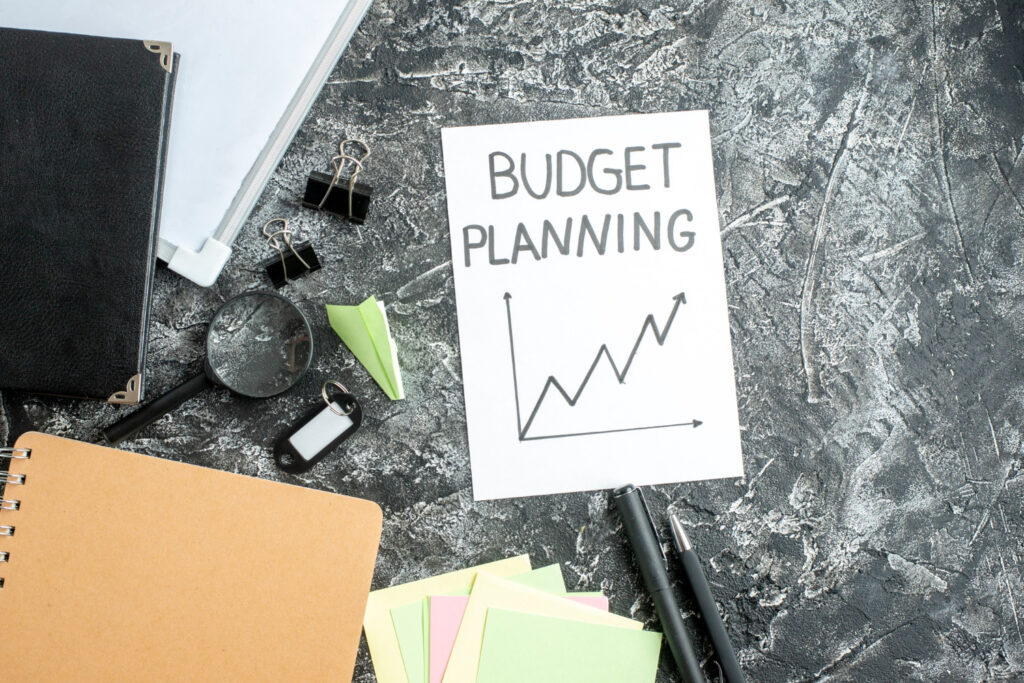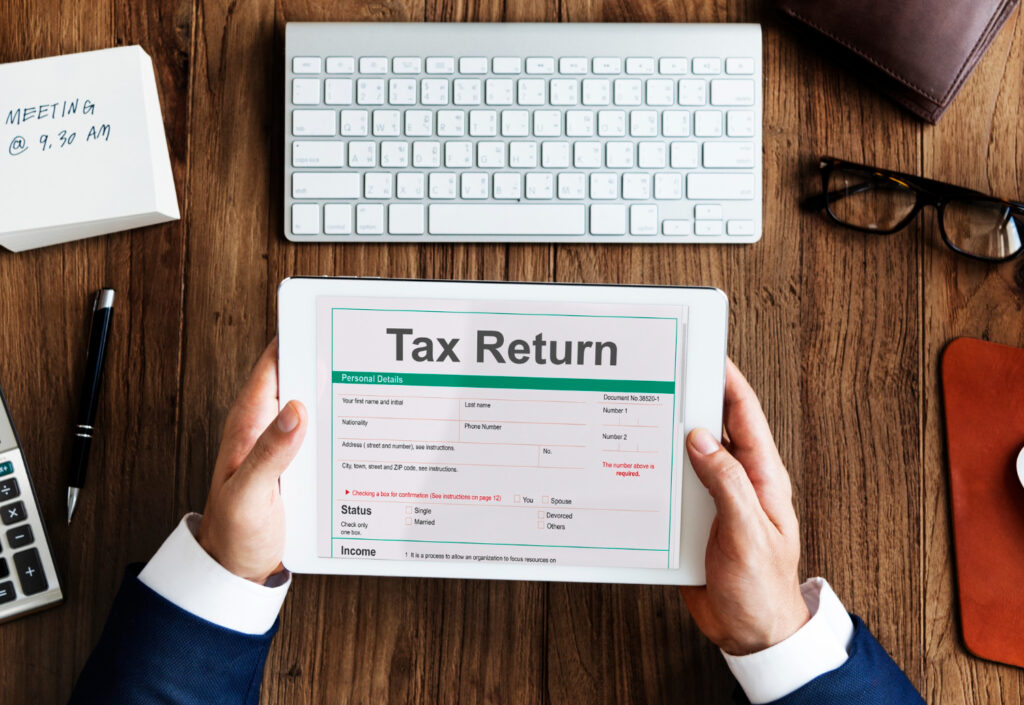10 Financial Tips For Young Adults: Build Wealth Before It’s Too Late

Look, nobody hands you a manual when you turn 18 that says “Here’s how to not mess up your money.” I wish someone had sat me down after graduation and explained this stuff in plain English. Instead, I learned the hard way, making mistakes that cost me years of financial progress.
Here’s the good news: you’ve got something most people would kill for. Time. And when it comes to money, time is literally your superpower.
The decisions you make right now, in your twenties or early thirties, will shape your entire financial future. Sounds dramatic? Maybe. But it’s also 100% true.
I’ve spent years studying personal finance, earning my degrees in finance and financial management, and honestly? The basics haven’t changed.
What works is pretty straightforward. The hard part is actually doing it when Netflix is calling and your friends are planning another expensive weekend trip.
Let’s talk about how you can set yourself up for serious financial success without feeling like you’re living in your parents’ basement eating ramen every night. 🙂
What’s The Best Financial Advice For Young Adults?
If I could tattoo one piece of advice on every young person’s forehead (okay, that’s weird, but stay with me), it would be this: avoid debt like it’s your ex at a party, and save money like your future depends on it. Because guess what? It does.
Debt is basically a financial anchor. When you’re drowning in student loans, credit card balances, and car payments, you’re working to pay for your past instead of building your future.
I’ve seen brilliant people stuck in jobs they hate because they need the paycheck to cover debt payments. That’s not freedom, that’s a trap.
When you’re debt-free, though? Everything changes. Suddenly you can actually keep the money you earn. You can save it, invest it, or use it to take calculated risks that could pay off big time. Your income becomes a tool for building wealth instead of a band-aid for past mistakes.
Think about it this way: every dollar you pay in interest is a dollar that could’ve been working for you instead. Over a lifetime, we’re talking about hundreds of thousands of dollars. Maybe even millions. Yeah, it’s that serious.
What Can Young Adults Do Differently For Their Finances?
Here’s something most people won’t tell you: a lot of financial struggle is generational. Your parents probably learned about money from their parents, who learned from their parents, and so on. If nobody in that chain knew what they were doing, well, you can see the problem.
But that’s actually your advantage. You get to be the one who breaks the cycle.
I remember watching my own family struggle with money decisions that seemed obvious in hindsight. They didn’t budget. They didn’t invest. They made emotional purchases and hoped everything would work out. And when I graduated college, I promised myself I’d do things differently.
1. Learn From Others’ Mistakes
You don’t have to make every mistake yourself to learn the lesson. Look around at the older adults in your life. Who’s stressed about money? Who seems comfortable? What did they do differently?
One of my relatives worked the same job for 30 years and has basically nothing to show for it. Another started investing early and retired at 55. Same family, totally different outcomes. The difference? Financial literacy and consistent action.
Pay attention to the financial disasters happening around you. When your coworker complains about credit card debt, that’s a lesson. When your friend’s parents lose their house, that’s information you can use.
I know it sounds cold, but learning from others’ pain is way better than experiencing it yourself.
2. Stop Comparing Yourself To Others
Social media makes this so much harder than it used to be. Everyone’s posting their wins, their new cars, their vacations, their promotions. And you’re sitting there thinking you’re behind.
Let me tell you something: comparison is financial poison. Someone will always have more than you. Always. If you’re constantly trying to keep up, you’ll spend your entire life chasing a moving target and never actually building real wealth.
Your timeline is your timeline. Some people inherit money. Some get lucky with a startup. Some grind for decades. None of that matters for your personal journey. Focus on your own goals, your own progress, your own definition of success.
I didn’t buy my first property until I was 29. Some of my friends did it at 24. So what? We’re all on different paths, and comparing myself to them would’ve just made me miserable and possibly caused me to make stupid financial decisions to “catch up.”
10 Financial Tips For Young Adults
Alright, let’s get into the actual strategies that’ll help you build a solid financial foundation. These aren’t complicated, but they do require discipline and consistency. Ready?
1. Learn About Money

You can’t manage what you don’t understand. Period. And unfortunately, most schools don’t teach practical financial skills. You graduate knowing calculus but not how a 401(k) works. Makes sense, right? (That’s sarcasm, BTW.)
Financial education needs to be self-directed. The good news is that we live in an age where information is everywhere. Books, podcasts, YouTube channels, blogs (like this one), courses. Most of it is free or cheap.
When I first started learning about money, I devoured everything I could find. I read books by financial experts, listened to podcasts during my commute, and followed personal finance blogs. Within six months, I knew more about managing money than most adults twice my age.
Here’s what you should focus on learning:
- How to create and stick to a budget
- The difference between good debt and bad debt
- How compound interest works (this one’s huge)
- Basic investing principles and different account types
- Tax strategies that can save you thousands
- How to negotiate salary and benefits
Start with one topic at a time. Don’t try to learn everything overnight. Maybe spend this month understanding budgeting, next month learning about investing, and so on. Small, consistent learning beats random information overload every time.
The knowledge you gain will literally pay you back for the rest of your life. I’m not exaggerating. Understanding how money works is probably worth millions of dollars over a lifetime compared to staying ignorant.
2. Avoid Or Minimize Debt

Debt is like quicksand. The more you struggle with it, the deeper you sink. And the interest? That’s what really kills you. It’s the financial equivalent of trying to run a race with weights strapped to your ankles.
Now, I’m realistic. Some debt might be unavoidable. Student loans, for example, or maybe a reasonable car payment if you need reliable transportation for work. But credit card debt? That’s almost always avoidable and absolutely devastating to your financial health.
Credit card companies love young adults because they know you’re likely to make mistakes. They offer you cards with crazy high interest rates (we’re talking 20-30% sometimes), and then they wait for you to carry a balance. That’s when they make their money.
Let me give you a real example. Say you have $5,000 in credit card debt at 22% interest. If you only make minimum payments, you’ll pay over $7,000 in interest alone.
That’s more than the original debt! And it’ll take you over 20 years to pay off. Twenty years of paying for stuff you probably don’t even remember buying.
Debt Payoff Strategies That Actually Work
If you already have debt (and most young adults do), you need a solid plan to eliminate it. There are two main approaches that work:
The Snowball Method: Pay off your smallest debt first, regardless of interest rate. Once that’s gone, take that payment amount and add it to the next smallest debt. This creates momentum and psychological wins that keep you motivated.
I used this method for my first round of debt payoff, and honestly, the mental boost from eliminating that first small balance was huge. It made the whole process feel achievable instead of overwhelming.
The Avalanche Method: Focus on the debt with the highest interest rate first. Mathematically, this saves you the most money because you’re eliminating the most expensive debt fastest.
This is the method I recommend if you’re very disciplined and motivated by numbers rather than quick wins. Over time, it’s more efficient, but it requires patience because your highest-interest debt might also be your largest balance.
Whichever method you choose, the key is consistency. Set up automatic payments if possible. Throw any extra money at your debt, whether it’s a tax refund, work bonus, or side hustle income. The faster you eliminate debt, the sooner you can start actually building wealth.
3. Save And Invest

This is where the magic happens. Saving and investing is how you go from living paycheck to paycheck to actually building wealth. And the earlier you start, the more dramatic the results.
Let’s talk about compound interest for a second. Einstein supposedly called it the eighth wonder of the world, and he wasn’t wrong. It’s basically earning returns on your returns, which creates exponential growth over time.
Here’s a real example that’ll blow your mind: If you invest $200 per month starting at age 25 with an average 8% annual return, by age 65 you’ll have about $622,000.
Not bad, right? But here’s the crazy part. If you wait until age 35 to start, investing that same $200 per month, you’ll only have about $273,000. That 10-year delay cost you nearly $350,000!
That’s why starting early is so incredibly powerful. You don’t need to invest huge amounts. You just need to start now and be consistent.
Where Should You Invest?
If your employer offers a 401(k), especially with matching contributions, that’s your first stop. Employer matching is literally free money. If they match 3% and you don’t contribute, you’re turning down a 3% raise. Who does that?
Max out that employer match first. Then consider opening a Roth IRA, which lets your money grow tax-free. You pay taxes on the money now, but when you retire and withdraw it, you pay nothing. Zero. Nada. For someone young in a lower tax bracket, this is usually a fantastic deal.
As for what to invest in, keep it simple. Index funds and ETFs (exchange-traded funds) that track the overall market are perfect for beginners. They’re diversified, low-cost, and historically have provided solid returns over time.
You don’t need to pick individual stocks or try to time the market. That’s a game most professionals lose.
I started with just $50 a month in a Roth IRA invested in a total market index fund. Nothing fancy. But I was consistent, and I increased my contributions whenever I got a raise. Ten years later, that account is worth more than I ever imagined when I started.
4. Budget Your Money

Budgeting gets a bad reputation. People think it means deprivation and misery, like you’re putting yourself on a financial diet of rice and beans. But that’s not what budgeting actually is.
A budget is simply a plan for your money. It’s you telling your money where to go instead of wondering where it went. It’s about being intentional and making sure your spending aligns with your actual priorities.
Think about it: would you take a road trip without knowing your destination? Would you build a house without blueprints? Of course not. So why would you handle your money without a plan?
When I created my first real budget, I was shocked. I thought I knew where my money was going, but seeing it all written out was eye-opening. I was spending $200 a month on food delivery. Two hundred dollars! For someone trying to save money, that was ridiculous. But I didn’t realize it until I tracked it.
How To Actually Budget
There are tons of budgeting methods out there, but here’s a simple approach that works:
Step 1: Calculate your total monthly income after taxes.
Step 2: List all your fixed expenses (rent, utilities, insurance, loan payments, etc.).
Step 3: Estimate your variable expenses (groceries, gas, entertainment, etc.).
Step 4: Assign every remaining dollar a job (savings, investments, debt payoff, etc.).
The goal is for your income minus expenses to equal zero. Not because you spent everything, but because every dollar has been assigned a purpose, including the dollars you’re saving and investing.
Tools like Mint or YNAB (You Need A Budget) can automate a lot of this. They connect to your bank accounts, categorize transactions, and show you exactly where your money is going.
I personally love YNAB because it forces you to be proactive rather than reactive with your money.
The first month of budgeting is always the hardest. You’re learning your spending patterns and adjusting your estimates. But by month three, it becomes second nature. And the peace of mind that comes from knowing exactly where you stand financially? Priceless.
5. Watch Your Spending Habits
Your income matters, sure. But your spending habits matter even more. I’ve known people who make six figures and live paycheck to paycheck.
I’ve also known people who make $40,000 and manage to save 20% of their income. The difference? Spending discipline.
We live in a consumer culture that’s constantly trying to separate you from your money. Marketing is everywhere, designed by psychologists to make you want things you don’t need.
Social media makes you feel like you’re missing out if you’re not buying, traveling, or upgrading constantly.
Fighting this requires awareness and intentionality. You need to actually pay attention to where your money goes and question your spending decisions.
Common Spending Traps To Avoid
Lifestyle inflation: This is when your spending increases every time your income increases. You get a raise, so you upgrade your apartment, your car, your wardrobe.
Suddenly you’re making more but saving the same (or less). The solution? When you get a raise, immediately increase your savings/investment contributions by at least half of the raise amount.
Subscription creep: Streaming services, gym memberships, app subscriptions, meal kits. They’re all small individually, but they add up fast.
I once audited my subscriptions and found I was paying for three streaming services I barely used and a gym membership I hadn’t used in six months. Canceling them saved me over $100 a month.
Impulse purchases: That random stuff you buy because it’s on sale or you’re bored or it showed up in a targeted ad. The 24-hour rule helps here: if you want something, wait 24 hours before buying it. Most of the time, the urge passes and you realize you didn’t actually want it.
Review your bank and credit card statements monthly. It’s boring, I know, but it’s also enlightening. You’ll spot patterns, identify leaks, and make better decisions going forward. FYI, this is one habit that separates people who build wealth from people who wonder where their money went.
6. Plan For Emergencies
Life has a funny way of throwing curveballs exactly when you can’t afford them. Your car breaks down. Your laptop dies. You need an unexpected medical procedure. Your employer downsizes and you lose your job.
Without an emergency fund, these situations become financial disasters. You’re forced to put expenses on credit cards, borrow from family, or derail your entire financial plan. With an emergency fund, they’re just annoying inconveniences.
An emergency fund is simply money set aside in a separate, easily accessible savings account for unexpected expenses. It’s not for vacations or new gadgets. It’s for actual emergencies.
How Much Should You Save?
The standard advice is 3-6 months of expenses. If you spend $2,500 per month on rent, food, utilities, insurance, and other necessities, you’d want $7,500 to $15,000 in your emergency fund.
I know that sounds like a lot, especially when you’re just starting out. Don’t let that discourage you. Start with a goal of $1,000. That’ll cover most minor emergencies. Then work toward one month of expenses, then three, then six.
When I built my first emergency fund, I started by saving just $25 per week. It didn’t feel like much, but after a year, I had over $1,200 saved. That gave me breathing room and peace of mind I’d never had before.
Keep this money in a high-yield savings account (like those offered by Ally Bank or Marcus by Goldman Sachs) where it’ll earn some interest but still be accessible when you need it. Don’t invest your emergency fund in stocks or anything volatile. The whole point is that it’s there when you need it, not subject to market swings.
Having an emergency fund completely changes your relationship with money. You stop living in fear of the next unexpected expense. You can handle problems without derailing your entire financial life. It’s one of the most important steps in building financial stability.
7. Protect Your Wealth

Building wealth is important, but protecting what you build is equally crucial. I’ve seen people work for years to save money, only to lose it all because they didn’t have proper protection in place.
Insurance might seem boring and expensive, but it’s actually one of the smartest financial moves you can make. The right insurance protects you from catastrophic losses that could wipe out everything you’ve worked for.
Types Of Insurance You Need
Health Insurance: Medical debt is one of the leading causes of bankruptcy in America. Even if you’re young and healthy, one accident or unexpected illness can cost hundreds of thousands of dollars. Health insurance is non-negotiable.
Renters or Homeowners Insurance: If you rent, you need renters insurance. It’s cheap (often $15-30 per month) and covers your belongings if there’s a fire, theft, or other disaster. If you own, homeowners insurance is usually required by your mortgage lender, but even if it wasn’t, you’d need it.
Auto Insurance: If you drive, you need this. It’s legally required in most places, but beyond that, it protects you from potentially devastating liability if you cause an accident.
Disability Insurance: This is the one most young people ignore, but it’s actually super important. If you become unable to work due to illness or injury, disability insurance replaces a portion of your income. Your ability to earn income is probably your most valuable asset right now, so protecting it makes sense.
Life Insurance: If anyone depends on your income (spouse, kids, aging parents), you need life insurance. Term life insurance is cheap for young, healthy people and provides crucial protection for your family.
Beyond insurance, protecting your wealth also means being smart about taxes. Legal tax reduction strategies can save you thousands of dollars over time. Contributing to retirement accounts, taking advantage of tax credits, and understanding deductions all help you keep more of what you earn.
8. Prioritize Your Health
This might seem like weird advice in a financial article, but hear me out: your health and your wealth are connected in ways most people don’t think about.
Healthcare costs in America are insane. The average American spends over $12,000 per year on healthcare. And that’s just the average. If you develop chronic conditions or need major medical interventions, costs can skyrocket.
But here’s the thing: many health problems are preventable or manageable with lifestyle choices. Eating reasonably well, exercising regularly, getting enough sleep, managing stress, and avoiding smoking can dramatically reduce your healthcare costs over a lifetime.
I’m not saying you need to become a fitness fanatic or eat only organic kale (please don’t). But basic health maintenance is one of the best financial investments you can make.
The Financial Benefits Of Being Healthy
Lower medical expenses are obvious, but there are other financial benefits too:
- Fewer sick days mean more consistent income
- Better health often means better job performance and career advancement
- You’ll pay less for life and disability insurance
- More energy means you can potentially take on side hustles or additional work
- You’ll avoid the financial stress that comes with managing chronic illness
When I started prioritizing my health in my mid-twenties, I noticed I was spending way less on doctor visits, medications, and sick days. I also had more energy to work on side projects that brought in additional income. The financial benefits were real and measurable.
Invest in preventive care. Get annual checkups. Address small health issues before they become big ones. Your future self (and your future bank account) will thank you.
9. Understand Your Taxes

Taxes are probably the least exciting topic in personal finance, but they’re also one of the most important. The average American pays over 30% of their income in various taxes. That’s a huge chunk of your earnings!
Understanding how taxes work helps you make smarter financial decisions and keep more of what you earn. And no, I’m not talking about shady tax evasion. I’m talking about legal strategies that reduce your tax burden.
Basic Tax Concepts You Need To Know
Tax brackets: The U.S. has a progressive tax system, meaning you pay different rates on different portions of your income. Your tax bracket is the highest rate you pay, but you don’t pay that rate on all your income. Understanding this prevents panic when you get a raise and worry about “jumping into a higher bracket.”
Tax deductions vs. credits: Deductions reduce your taxable income. Credits reduce your actual tax bill dollar-for-dollar. Credits are generally more valuable. Knowing which tax credits you qualify for (education credits, child tax credit, earned income credit, etc.) can save you serious money.
Pre-tax vs. post-tax retirement accounts: Traditional 401(k)s and IRAs use pre-tax money, reducing your current taxable income. Roth accounts use post-tax money, but your withdrawals in retirement are tax-free. Which is better depends on your current tax bracket vs. your expected retirement tax bracket.
For most young adults, Roth accounts make more sense because you’re likely in a lower tax bracket now than you will be in retirement. Pay the taxes now while they’re lower, then enjoy tax-free growth and withdrawals later.
I didn’t really understand taxes until I sat down and forced myself to learn. Once I did, I realized I’d been leaving money on the table for years.
I started maxing out my retirement contributions, taking advantage of credits I qualified for, and timing certain expenses to optimize my tax situation. These strategies have saved me thousands of dollars.
If taxes feel overwhelming, consider using tax software like TurboTax or H&R Block, or working with a tax professional, especially if you have a complex situation. The money you spend on good tax help often pays for itself many times over.
10. Work With A Financial Planner
Sometimes the best investment you can make is in professional advice. A good financial planner can help you avoid costly mistakes, optimize your strategy, and stay accountable to your goals.
Now, I’m not saying everyone needs a financial planner. If your situation is simple (you’re just starting out, have minimal assets, straightforward income), you can probably handle things yourself with some education and discipline.
But as your financial life gets more complex (higher income, investments, home ownership, family, business ownership), professional guidance becomes more valuable. A financial planner can help with retirement planning, investment strategy, tax optimization, insurance needs, and estate planning.
How To Find A Good Financial Advisor
Not all financial advisors are created equal. Here’s what to look for:
Fee-only advisors: These advisors charge a flat fee or hourly rate rather than earning commissions on products they sell you. This structure reduces conflicts of interest. They’re working for you, not for commission checks from investment companies.
Fiduciary duty: Make sure any advisor you work with is legally required to act in your best interest. Not all financial professionals have this obligation, which is crazy but true.
Relevant credentials: Look for designations like CFP (Certified Financial Planner) or CFA (Chartered Financial Analyst). These require significant education and testing.
Transparent pricing: You should clearly understand how much you’re paying and what you’re getting for that cost. If an advisor is vague about fees, that’s a red flag.
When I first worked with a financial planner, I was nervous about the cost. But the advice I received helped me restructure my investments, optimize my tax strategy, and create a clear roadmap for my goals. The value far exceeded the fee.
You can also look for advice through services like Facet Wealth or Vanguard Personal Advisor Services, which offer professional guidance at more accessible price points than traditional advisors.
Bonus Tip: Live Within Your Means
This is the foundation that everything else is built on. If you spend more than you earn, nothing else matters. You can’t save, you can’t invest, you can’t build wealth. You’re just treading water and probably slowly sinking.
Living within your means sounds simple, but it’s actually challenging in our current culture. Everyone’s trying to look successful, and looking successful costs money.
Designer clothes, nice cars, trendy apartments, expensive restaurants, constant travel. Social media makes it worse because you’re constantly seeing everyone else’s highlight reel.
But here’s the secret: most of those people aren’t actually wealthy. They’re just good at looking wealthy. Real wealth is what you don’t see. It’s the investments, the savings, the paid-off debts. It’s not the Instagram-worthy lifestyle.
What Living Within Your Means Actually Looks Like
It means your housing costs are reasonable for your income (ideally 25-30% or less). It means you’re not financing a lifestyle you can’t afford. It means you can cover your expenses, save for the future, and still enjoy life without going into debt.
IMO, this is where a lot of young adults struggle. They see peers with nice apartments, new cars, and exciting lifestyles, and they want the same thing. So they stretch their budget, take on debt, and create financial stress trying to keep up.
I fell into this trap early on. I moved into an apartment that was technically affordable but left me with almost nothing for savings or fun money. I was miserable, stressed, and making no financial progress.
When I moved to a cheaper place, my entire financial life improved. I could save, invest, and actually enjoy life without constant money stress.
Living below your means (even better than within your means) creates margin in your life. Margin means breathing room. It means options. It means you’re not one emergency away from financial disaster.
This doesn’t mean living like a monk and never enjoying anything. It means being intentional about your spending, prioritizing what actually matters to you, and not trying to impress people who don’t actually care about you.
Final Thoughts
Building a solid financial foundation as a young adult isn’t rocket science, but it does require discipline, patience, and consistent action. The strategies we’ve covered aren’t sexy or exciting.
There’s no get-rich-quick scheme here. Just proven principles that work if you actually implement them.
The beautiful thing about starting young is that time is on your side. Small actions now compound into massive results later. That $200 monthly investment might not feel significant today, but in 30 years, it could be worth hundreds of thousands of dollars.
Your twenties and thirties are when you set the trajectory for the rest of your financial life. The habits you build now, the knowledge you gain, the systems you put in place will serve you for decades.
Or, if you ignore this stuff, you’ll spend your forties and fifties trying to catch up while dealing with way more financial responsibilities.
Start where you are. You don’t need to implement everything at once. Pick one or two strategies from this list and focus on those. Master them, make them habits, then add more. Progress beats perfection every single time.
And remember, everyone’s journey is different. Don’t compare your chapter two to someone else’s chapter twenty. Focus on your own progress, celebrate your wins (even small ones), and keep moving forward.
Your future self is counting on the decisions you make today. Make them good ones. 🙂








